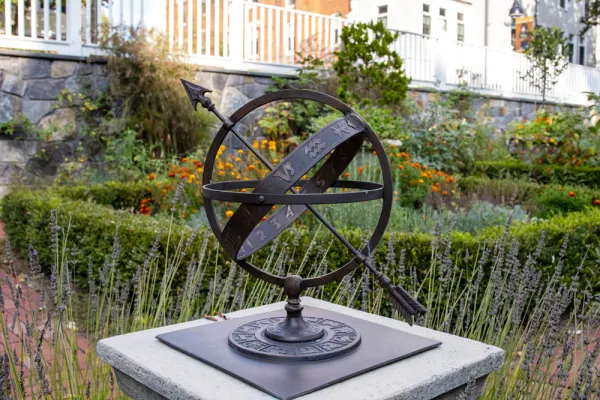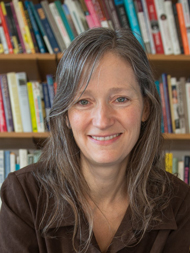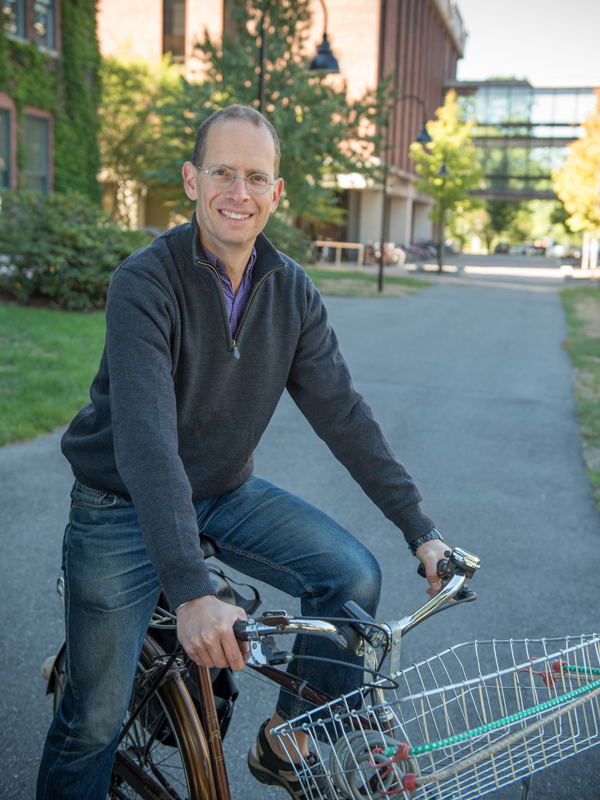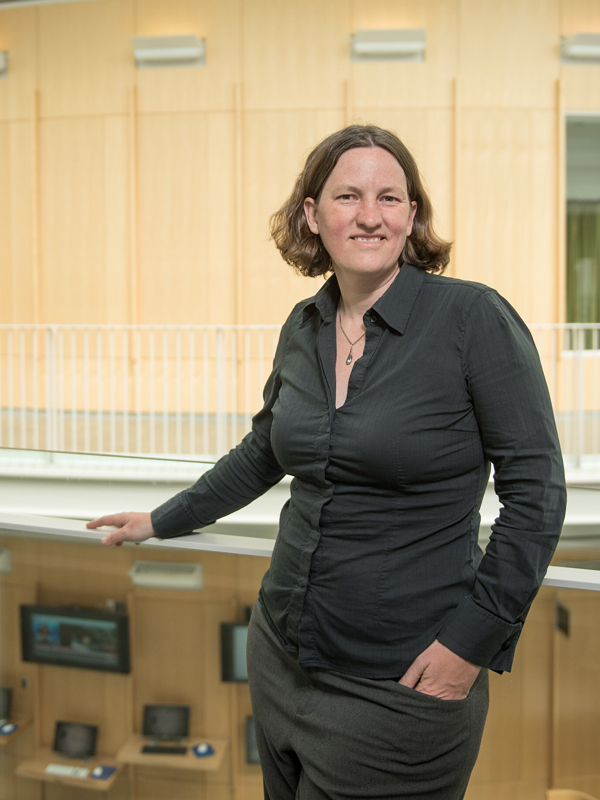Smith Will Celebrate Teaching Award Winners
Research & Inquiry

Published October 7, 2020
The three faculty members chosen for this year’s Sherrerd teaching awards are classroom “role models,” who use kindness, humor and real-world scholarship to inspire and support their students, their nominators say.
The 2020 award recipients are Carrie Baker, professor of the study of women and gender; James Lowenthal, Mary Elizabeth Moses Professor of Astronomy; and Denise McKahn, associate professor of engineering.
The three honorees will be celebrated at a virtual ceremony on Thursday, Oct. 15, at 5:30 p.m. The event can be viewed via a Zoom link sent to college community members, or live on Facebook.
The Kathleen Compton Sherrerd ’54 and John J. F. Sherrerd Prizes for Distinguished Teaching were established in 2009 to highlight outstanding teaching at Smith. Each year, students, faculty and alumnae nominate educators who exemplify excellence and inspire their students—both inside and outside of the classroom.
We asked this year’s award recipients to reflect on the rewards and challenges of teaching. Here’s what they had to say:
What led you to become an educator, and what is the most rewarding thing about your work in the classroom?
Carrie Baker, professor of the study of women and gender
“I realized my love of teaching when I became an instructor of martial arts while I was in college. … It was a very different type of teaching than what I do today, but I learned to love sharing knowledge and seeing the light in my students’ eyes as they learned new techniques and discovered their power.
 “The most rewarding thing for me about teaching at Smith is developing close relationships with my students—watching them grow and develop over the years and learning from them. I really value connecting with young people who are at a transformational time in their lives, when they are open to learning, exploring and questioning. Smith students are particularly hungry for knowledge, which keeps me growing, learning and questioning too.
“The most rewarding thing for me about teaching at Smith is developing close relationships with my students—watching them grow and develop over the years and learning from them. I really value connecting with young people who are at a transformational time in their lives, when they are open to learning, exploring and questioning. Smith students are particularly hungry for knowledge, which keeps me growing, learning and questioning too.
“I also love following their lives after Smith and seeing all the wonderful things that they do, and then bringing them back to speak with my current students.
“My Smith students give me hope for the future because they are so smart, skilled and determined to make the world a better place. At a time when there are so many huge problems in the world, from social injustice to the climate crisis, I feel reassured to know that these young people will be tomorrow’s leaders.”
How are you coping with the current remote teaching environment, and what keeps you inspired about teaching?
James Lowenthal, Mary Elizabeth Moses Professor of Astronomy
“The summer and first few weeks of classes were a huge push to figure out the new tools and environment: It was like starting teaching all over again, and it was stressful. Now, I feel a bit more settled, and the students are bringing such infectious goodwill and hard work that the pleasure of connecting with them is taking over.
 “It’s amazing that we've been able to build all of these communities of learners around the world, despite it all hanging by a virtual thread. As an advocate for reducing travel to cut greenhouse gas emissions, I’ve actually been pushing for years for remote meetings in my field; now all meetings are remote.
“It’s amazing that we've been able to build all of these communities of learners around the world, despite it all hanging by a virtual thread. As an advocate for reducing travel to cut greenhouse gas emissions, I’ve actually been pushing for years for remote meetings in my field; now all meetings are remote.
“Beyond COVID, I’ll be glad to have some more tools in my toolbox. I can’t wait to be back in the classroom with students in person again, and I’ll certainly use some of those tools in the future. We’ve learned new ways to help students engage with us, with each other, and with our collective intellectual process, and many of those lessons will stay with us.
“Teaching is fun, rewarding—and important. Especially when you're passionate about something (and most people are), to share that passion with other people feels like a calling. I really can’t imagine not wanting to be in a classroom or under the stars on a clear dark night with students, figuring out together how the planets move along the ecliptic or what makes the Milky Way appear the way it does. It’s a privilege to be allowed into my students’ lives during this special time, and to be able to help them navigate their own path through school and life.”
What do you feel are the elements of good teaching, and what is something you have learned from your students?
Denise McKahn, associate professor of engineering
“I absolutely love working with students to discover themselves, their voices and their potential for impact. In engineering, one might imagine that we spend a great deal of time calculating, which is a fair assessment. But helping students discover what compels them to take action, and then supporting them to actually carve out a possible pathway that gets them there is a unique teaching and learning opportunity.

“That said, it’s not always easy. There are times when students take one of my courses because it is required, they perceive that it will get them a job, or it’s the lesser of two evils. I always tell them that, ironically, one of the courses I disliked the most is one I now teach. So, they should be careful if they enter a field with healthy skepticism because they may find out they love it!
“Our students are incredibly resilient, engaged and thoughtful. That they show up to class on Zoom, pay attention, ask questions, struggle through badly led breakout room dialogue—and then come back laughing—is truly astonishing.
“From my students I have learned that undergraduates of all ages have tremendous potential to make change in the world. That knowing me as a person is critical to building trust in a classroom, because teaching and learning are not merely transactions. And that students have full lives with many demands on their shoulders. If I listen carefully enough, I can relate course material to those elements of their lives that connect the dots in meaningful ways. When a juggling circus clown majors in engineering, she may actually just want to be a circus clown with a backup plan—and that’s a huge contribution to the world in difficult times.”